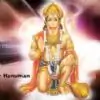Originally posted by: coolpurvi
No one is saying Draupadi is complete incarnation of Laxmi. she is only a part incarnation. dont say that's impossible.
It would be the first, if not only, instance of any god/ess having multiple incarnations simultaneously: e.g. Parashuram's avatar ended when Rama's began. I always read that Rukmini was the incarnation of Lakshmi - this is the first time I'm reading that about Draupadi. That actually would raise a different question, actually 2 -
1. Are God/desses capable of cloning themselves as mutiple avatars at the same time?
2. Have there been instances in Hindu mythology where that's actually happened?
Originally posted by: coolpurvi
Only lord Ram was complete epitome of Lord Vishnu (as mentioned in Yuddha Kand). othre bros of Him were part incarnation. confusion lies in the interpretaion of the word "part". sudarshan chakra, shankha, shesh nag r not just mere ornaments of Lord Vishnu. they r parts of Lord Vishnu
Okay, but again, my question was - what is the source of it? I don't recall seeing that in Valmiki, so is this something that originated in Manas, or some other version?
Originally posted by: coolpurvi
Ignorance n narrow mindness was the cause of all doubts. Ans a ques honestly. Dont u ever did any mistake out of ignorance ever? I did many times. Repented for them from the bottom of my heart. Dont I deserve to be forgiven for my mistakes
None is perfect. We cant gaurantee that we never did any mistakes or till our last breath we will never do any mistakes. after all we r human beings
I guess we have different definitions of what constitutes 'mistakes'. To me, if I neglected to pick my kid up after school because I thought my wife was going to, that would be a mistake. In that sort of a situation, yes, I'd repent and want to be forgiven.
However, if I was the cause of something major, like someone's death, or untold suffering to somebody else, let alone Gods, I wouldn't forgive myself nor deserve to be forgiven. Sure, forgiveness is a great quality, but it's generally earned after the sinner has suffered the consequences for the sin. Otherwise, people guilty of major crimes would just have to apologize, and that would be the end of the story. Forgiveness does not imply that the person being forgiven doesn't face any consequences. It definitely does not mean that the person being forgiven should be rewarded for it, which is what happened here.
In this epic, both Vali & Ravan were responsible for the separation of a husband from his wife, and both paid for it with their lives, and were then forgiven. The people of Ayodhya were guilty of the same crime, yet not only were they not punished, but at the end of the day, they got to go in their mortal forms to Vaikuntha.
If only Sita and Lakshman were as lucky.



























